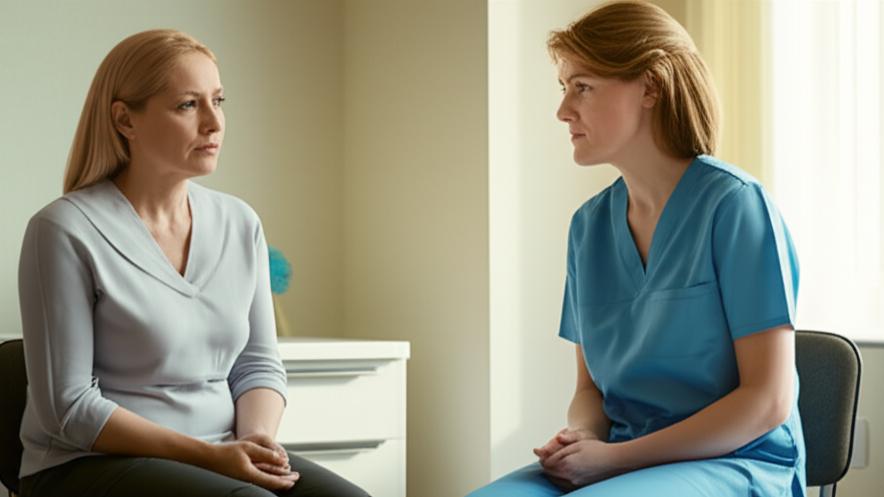I remember a patient, Sarah, sitting in my office, her hands clasped tightly in her lap. The word “cancer” had just been spoken, and the air felt thick with worry. Then, I mentioned a referral to a Radiation Oncologist. Her eyes widened a bit. “A what, doctor?” she asked, her voice barely a whisper. It’s a name that can sound a little intimidating, I know. So, let’s talk about these incredibly important doctors and what they do.
If you’re on a journey that involves cancer treatment, you might hear this term. A Radiation Oncologist is a doctor who’s a true specialist. They’ve dedicated years to learning how to use radiation therapy – a very powerful tool – to treat, and often cure, cancer. Think of them as experts in harnessing this energy to target those troublesome cancer cells.
So, What Does a Radiation Oncologist Actually Do?
It’s more than just administering treatment. They’re with you, guiding you through a big part of your cancer care. Here’s what you can generally expect them to do:
- Figuring out if radiation is right for you: First, they’ll look at your specific situation. Is radiation therapy a good option for the type of cancer you have? Sometimes it is, sometimes other treatments are better, or sometimes it’s a combination.
- Explaining your options: If radiation is a go, they’ll walk you through the different types. They’ll explain how it all works in a way you can understand. No jargon, just clear talk.
- Crafting your unique treatment plan: This is a big one. They design a precise plan, almost like a blueprint. It details the exact dose of radiation needed to tackle the cancer while doing their best to protect the healthy parts of you nearby. It’s a real science.
- Talking through the plan and what to expect: They’ll sit down with you and go over everything – what the treatment process will feel like, and yes, the possible side effects. Honesty is key here.
- Overseeing your treatment: They lead a whole team of skilled healthcare professionals who all specialize in radiation therapy. You’re in very capable hands.
- Helping you manage side effects: If side effects pop up, and they sometimes do, your Radiation Oncologist is there to help you manage them and feel as comfortable as possible.
It takes a long time to become a Radiation Oncologist. We’re talking four years of college, then four years of medical school. After that, a year of general medical or surgical training, followed by four more years of super-specialized residency training just in radiation oncology. And they keep learning and getting certified throughout their careers. They really are experts in this field.
Why Might You Need to See a Radiation Oncologist?
Well, the main reason is, of course, a cancer diagnosis. It might surprise you to learn that more than half of all people with cancer will have some form of radiation therapy. It’s a very common and effective treatment. Sometimes, they also help treat noncancerous tumors, the kind that aren’t cancer but still might need addressing.
These specialists treat many kinds of cancer. Some of the most common ones include:
- Breast cancer: Often, after surgery for early-stage breast cancer, radiation is used to target any cancer cells that might have been left behind.
- Lung cancer: Radiation plays a big role in treating both main types of lung cancer.
- Prostate cancer: Sometimes radiation is the main treatment, and other times it’s used along with different therapies.
Your First Appointment: What to Expect
That first meeting is so important. It’s a chance for your Radiation Oncologist to really get to know you and your medical story. They’ll carefully review all your records and reports. They’ll also do a physical exam.
Then, you’ll talk. They’ll discuss your specific type of cancer, their recommendations for radiation treatment, and what kind of side effects you might experience. This is your time to ask questions. Seriously, any question you have is valid. They’ll want to make sure you understand everything before you agree to start treatment.
Here are a few questions I often suggest patients jot down:
- What specific type of radiation will I be getting?
- What are the most common side effects I might experience with this treatment?
- Where will I actually go for my treatments?
- About how long will each treatment session take?
- How many treatments will I likely need in total?
- Are there things I should or shouldn’t do before, during, or after my treatment sessions (like eating, for example)?
- How flexible is the treatment schedule if something comes up?
Take-Home Message: What to Remember About Your Radiation Oncologist
Facing cancer treatment is a lot, I know. But understanding who’s on your team can make a world of difference.
- A Radiation Oncologist is a highly trained doctor specializing in treating cancer with radiation therapy.
- They will determine if radiation is right for you, design your specific treatment plan, and explain everything clearly.
- They oversee your entire radiation treatment process and help manage any side effects.
- They treat many types of cancer, including common ones like breast, lung, and prostate cancer.
- Your first appointment is a key time to ask questions and understand your proposed treatment.
You’re not walking this path by yourself. Your Radiation Oncologist is a vital part of your support system, bringing a huge amount of expertise and care to your fight.


